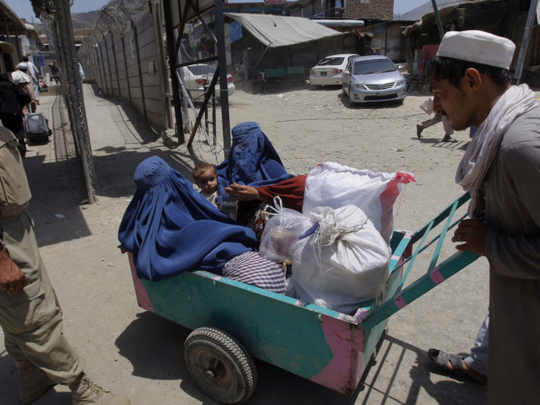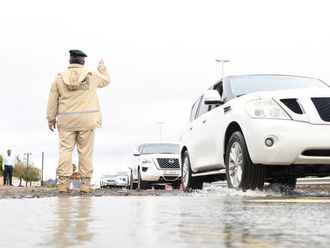
A week before I arrived in Afghanistan, the Taliban killed five people in a bomb explosion at a Kabul police station. The month before, 21 died in a Taliban attack on a well-known expat restaurant. Yet, I went. I arrived in Kabul in February 2014 to find drizzle, mud, brown decrepit buildings and an endless maze of unscalable walls topped with concertina wire. Armed men stood at every entrance.
On my second night, I was sitting on the floor of my freezing room huddled next to a tiny space heater, my feet jammed into thick wool socks. As I pulled the blanket tighter, I kicked myself for not packing a wool hat. I figured with wearing headscarves, a hat would be a waste of space. It was raining. I was alone, feeling disoriented and asking myself: what am I doing here? Ostensibly, I’d gone over there because my love was in Kabul working for the US government and I’d found a gig in communications that would keep us together. As a lifelong journalist, I’d also have a chance to train Afghan colleagues, which is what I most wanted to do.
But really, I went because I feared that my life was becoming a blur of years blending into one another. One Thanksgiving, while still warm and loving, was just like the next. I couldn’t remember exactly who was at the table. I was getting to where I couldn’t remember what I had done, when I had done it or who I had done it with. It wasn’t that I was losing it. It was just everything was so much the same. Why does that scare me when for many, sameness and stability provide comfort? You can’t rule out the personality you are born with, but as I’ve gotten older, I feel life quickly slipping by. I fear waking up one day and realising it’s too late for adventures.
My friends and family all thought I was crazy and tried to talk me out of it. They thought I was naive. But I couldn’t shake this feeling that I had to shake things up, to test myself, make my life’s edges sharper. In my 30s, my son’s father and I quit our journalism jobs in San Francisco and spent three years sailing through the South Pacific with our then nine-month-old son, Cutter. Today Cutter is 29, and I can still tell you where we were every month of those three years. The last 10 years before going to Kabul were vague, hazy, indistinct.
I wanted that clarity again. And during my two years in Afghanistan, I got that — and more. Yes, it was dangerous, and I was very careful. I took few risks, never walked on the streets, and travelled only with a car and driver from home to office. It isn’t like that for Afghans. They walk on the streets, the women enduring harassment, and the possibility of bombs randomly exploding is always there. And yes, I continued to be lonely — for my first year, I lived in Kabul and my partner, David, lived inside the fortress-like American Embassy. I could only visit him nights until 11pm, when a car came to get me. The embassy doesn’t allow overnight visitors, regardless of marital status.
Steep learning curve
But I had no desire to return home. It was like I was learning a new “language” by studying the politics, culture and people in the country America invaded in 2001. It was a steep learning curve, both professionally and politically.
It was shocking how little I knew about Afghanistan and how much I absorbed. I met wonderful, resilient Afghans. I travelled in the north to make a video for Japan’s development agency about progress in Badakhshan Province. I ate meals with locals, sharing a Ramadan feast with a sprawling family whose land dates back hundreds of years. I worked closely with Afghan journalists, teaching them how to report safely and effectively on the rampant corruption there. I flew in helicopters. I donned armour and a helmet during “duck and cover” drills.
And for the first time in 30 years as a journalist, I worked for the US government. Let’s just say... it wasn’t a good fit. But it was an education to peek behind walls previously barred to me. I got to know and love Afghans as individual people, not statistics in a far-away country. I saw firsthand how many there live a family-first, communal lifestyle. If my 29-year-old son lived at home, it would be odd. If my 29-year-old Afghan assistant and his wife did not live with family, it would be odd.
I witnessed firsthand how Afghans march forward in the face of unimaginable adversity. So many unrelenting, senseless deaths at the hands of the Taliban. Electricity failures that leave houses cold and dark for days at a time. A corrupt economy that makes it challenging to get a copy of your own degree without greasing a palm. A dearth of jobs. Limited freedom for women. Roads half built. Too much illiteracy. Little stability.
Afghans would crave the sameness and certainty I was eschewing. I went there to shake up my life, but I came home inspired. I can only hope that one Afghan at a time, I might have made a small difference. They certainly changed my life.
— Guardian News & Media Ltd
Alicia Shepard has covered the media for over 15 years. She is the author of Woodward and Bernstein: Life in the Shadow of Watergate.










